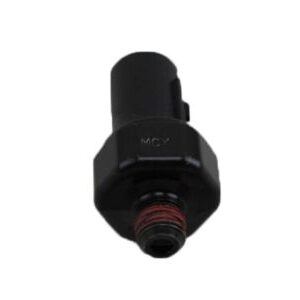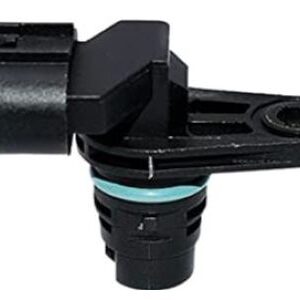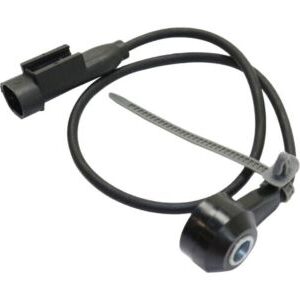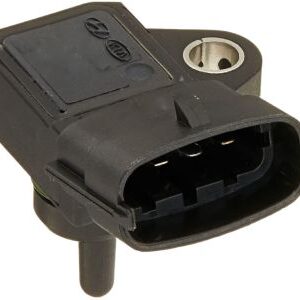Title: Silencing the Threat: The Importance of Knock Sensors in Cars
Introduction:
In the symphony of engine performance, there’s a silent guardian that listens for the telltale signs of trouble—the knock sensor. Often overlooked, this small yet essential component plays a critical role in safeguarding your engine from potentially damaging detonation or “knocking” events. In this blog, we’ll delve into the world of knock sensors in cars, exploring their function, importance, and the vital role they play in optimizing engine performance and longevity.
What is a Knock Sensor?
A knock sensor, also known as a detonation sensor, is a specialized sensor typically mounted on the engine block or cylinder head. Its primary function is to detect abnormal combustion events, such as detonation or pre-ignition, and provide feedback to the engine control unit (ECU) or powertrain control module (PCM).
Functionality:
But how does a knock sensor work its magic? As the engine operates, the knock sensor continuously monitors engine vibrations and acoustic signals for the characteristic sound of detonation or knocking. When abnormal combustion is detected, the knock sensor generates an electrical signal that is transmitted to the ECU or PCM. In response, the ECU or PCM may adjust ignition timing, fuel delivery, or other engine parameters to mitigate the knocking event and prevent engine damage.
Importance:
The importance of knock sensors in cars cannot be overstated. These small yet critical components serve as the first line of defense against potentially damaging detonation events, which can lead to engine knock, piston damage, and reduced engine performance. By detecting and responding to knock events in real time, knock sensors help optimize engine performance, improve fuel efficiency, and prolong engine life.
Key Functions of Knock Sensors:
1. Detonation Detection: The primary function of knock sensors is to detect abnormal combustion events, such as detonation or knocking, by monitoring engine vibrations and acoustic signals.
2. Feedback to Engine Control Unit: Knock sensors provide feedback to the engine control unit (ECU) or powertrain control module (PCM) about the occurrence and severity of knock events, allowing the ECU or PCM to take corrective action.
3. Engine Protection: By detecting and mitigating knock events, knock sensors help protect the engine from damage, ensuring reliable performance and longevity.
Maintenance and Replacement:
Proper maintenance of knock sensors is essential to ensure accurate detection and response to knock events. Over time, knock sensors may become contaminated with dirt, debris, or engine oil, leading to reduced sensitivity or failure. Regular inspection, cleaning, and testing of knock sensors as part of routine maintenance can help prevent issues and ensure proper function. If problems arise, such as persistent knocking or engine performance issues, professional diagnosis and replacement of the knock sensor may be necessary to restore proper operation.
Conclusion:
In conclusion, knock sensors may be small components, but their role in protecting the engine from damage is significant. By detecting and responding to potentially damaging detonation events, knock sensors help optimize engine performance, improve fuel efficiency, and prolong engine life. So, the next time you hit the road, take comfort in knowing that your engine’s silent guardian, the knock sensor, is listening for any signs of trouble and keeping your vehicle running smoothly and reliably.
Only 5 left in stock (can be backordered)
$18,926.31
Title: Silencing the Threat: The Importance of Knock Sensors in Cars
Introduction:
In the symphony of engine performance, there’s a silent guardian that listens for the telltale signs of trouble—the knock sensor. Often overlooked, this small yet essential component plays a critical role in safeguarding your engine from potentially damaging detonation or “knocking” events. In this blog, we’ll delve into the world of knock sensors in cars, exploring their function, importance, and the vital role they play in optimizing engine performance and longevity.
What is a Knock Sensor?
A knock sensor, also known as a detonation sensor, is a specialized sensor typically mounted on the engine block or cylinder head. Its primary function is to detect abnormal combustion events, such as detonation or pre-ignition, and provide feedback to the engine control unit (ECU) or powertrain control module (PCM).
Functionality:
But how does a knock sensor work its magic? As the engine operates, the knock sensor continuously monitors engine vibrations and acoustic signals for the characteristic sound of detonation or knocking. When abnormal combustion is detected, the knock sensor generates an electrical signal that is transmitted to the ECU or PCM. In response, the ECU or PCM may adjust ignition timing, fuel delivery, or other engine parameters to mitigate the knocking event and prevent engine damage.
Importance:
The importance of knock sensors in cars cannot be overstated. These small yet critical components serve as the first line of defense against potentially damaging detonation events, which can lead to engine knock, piston damage, and reduced engine performance. By detecting and responding to knock events in real time, knock sensors help optimize engine performance, improve fuel efficiency, and prolong engine life.
Key Functions of Knock Sensors:
1. Detonation Detection: The primary function of knock sensors is to detect abnormal combustion events, such as detonation or knocking, by monitoring engine vibrations and acoustic signals.
2. Feedback to Engine Control Unit: Knock sensors provide feedback to the engine control unit (ECU) or powertrain control module (PCM) about the occurrence and severity of knock events, allowing the ECU or PCM to take corrective action.
3. Engine Protection: By detecting and mitigating knock events, knock sensors help protect the engine from damage, ensuring reliable performance and longevity.
Maintenance and Replacement:
Proper maintenance of knock sensors is essential to ensure accurate detection and response to knock events. Over time, knock sensors may become contaminated with dirt, debris, or engine oil, leading to reduced sensitivity or failure. Regular inspection, cleaning, and testing of knock sensors as part of routine maintenance can help prevent issues and ensure proper function. If problems arise, such as persistent knocking or engine performance issues, professional diagnosis and replacement of the knock sensor may be necessary to restore proper operation.
Conclusion:
In conclusion, knock sensors may be small components, but their role in protecting the engine from damage is significant. By detecting and responding to potentially damaging detonation events, knock sensors help optimize engine performance, improve fuel efficiency, and prolong engine life. So, the next time you hit the road, take comfort in knowing that your engine’s silent guardian, the knock sensor, is listening for any signs of trouble and keeping your vehicle running smoothly and reliably.
| Warehouse | Inventory at warehouse 2 |
|---|




Get E-mail updates about our latest products and special offers.
Sensors and More is Jamaica’s ultimate online auto parts store. Established in 2020, we specialize in genuine electrical parts for Japanese, Read more…
Reviews
There are no reviews yet.